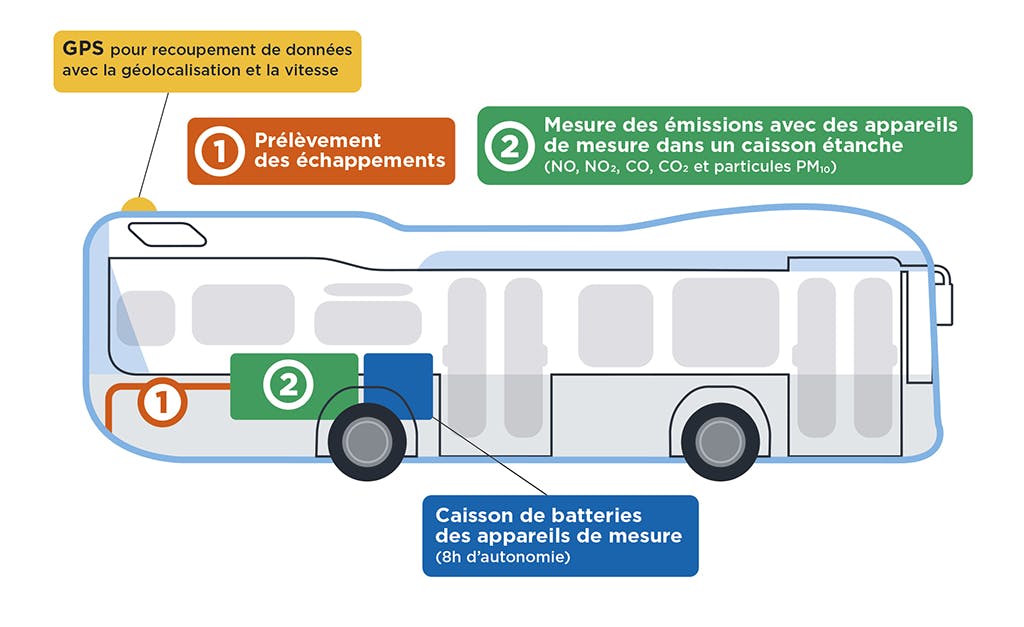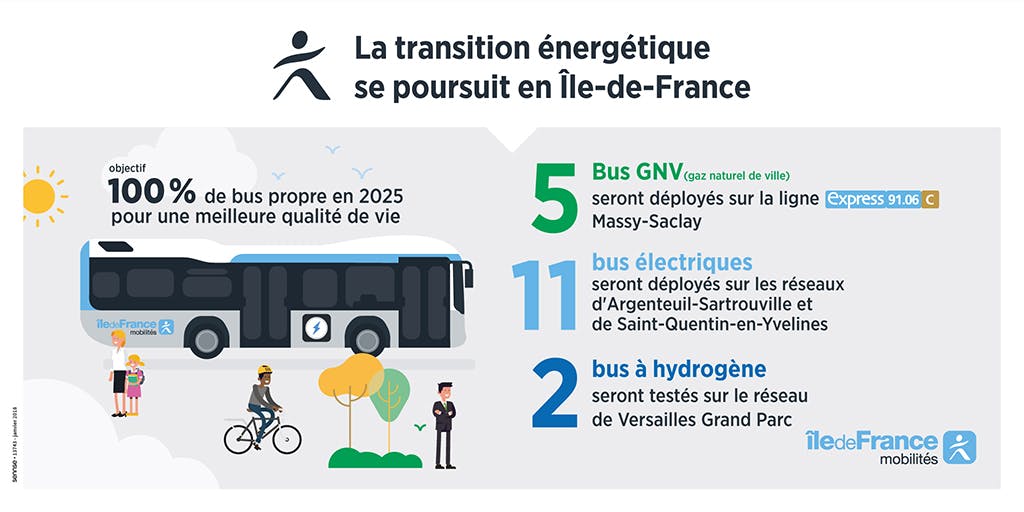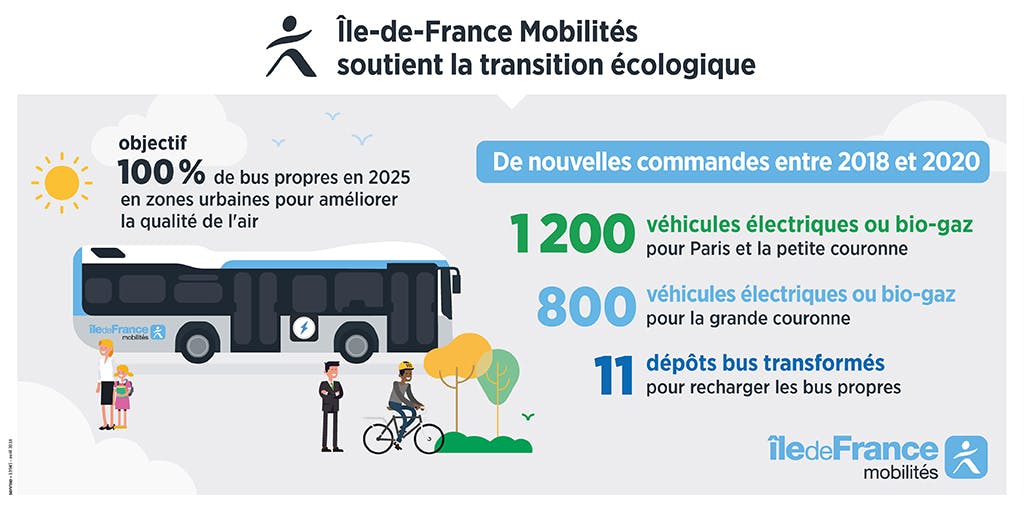Île-de-France Mobilités is committed to improving air quality
This study is a world first
The data collected will make it possible to:
- Airparif to refine knowledge of pollutant emissions in real conditions
- Île-de-France Mobilités to measure the benefits for Ile-de-France residents of its policy to improve air quality
Learn more:


100% electric buses by 2025 for a better quality of life. 5 NGV buses will be deployed on the Massy-Saclay express line. 11 electric buses will be deployed on the Argenteuil-Sartrouville and Saint-Quentin-en-Yvelines networks. 2 hydrogen buses will be tested on the Versailles Grand Parc network.

New orders between 2018 and 2020. 1200 electric or bio-gas vehicles for Paris and the inner suburbs. 800 electric or bio-gas vehicles for the outer suburbs. 11 bus depots converted to charge clean buses.
The energy transition, a major challenge for transport
Road transport (cars, trucks, buses, etc.) is responsible for a significant proportion of greenhouse gas emissions, nitrogen oxides and fine particles. Although the share of pollution for buses, in relation to the number of people transported, is lower than for other modes of road transport, it is nevertheless an important public health issue.
Cleaner vehicles
Ambitious goals:
- 100% clean vehicles in the dense area by 2025
- 100% clean buses by 2030 for the entire region
To achieve these objectives, Île-de-France Mobilités is pursuing, in collaboration with all transport operators, the deployment of electric and biogas buses , thus making the Île-de-France Region a world reference in very low-carbon public road transport.
More than 2000 clean buses are expected to be ordered by 2020
At the same time, work is being carried out on the adaptation of bus depots to clean energy, making it possible, for example, to accommodate electric or bio-NGV vehicles.
Île-de-France Mobilités is also continuing to experiment with new technologies such as synthetic fuels (GTL and HVO) or the hydrogen sector.
What impact do engines and fuels have on air quality?
Île-de-France Mobilités is conducting, with Airparif, a study that should improve the forecasting models of pollutant emissions in Île-de-France. This study will last one year with a start on Monday 18 June.
Île-de-France Mobilités and Airparif are testing, in real traffic conditions, different types of engines and fuels on several types of vehicles with a total of 22 buses being tested (over periods of two weeks each time).
The data collected will make it possible to refine the existing air quality monitoring and forecasting models and to assess the short- and medium-term effects of the bus fleet modernisation policy led by Île-de-France Mobilités.
The development of new forms of mobility
Île-de-France Mobilités has also implemented an ambitious policy to develop new forms of mobility such as carpooling to reduce the number of cars on the roads, electric bicycles, autonomous electric shuttles and by installing electric charging stations and spaces reserved for carpooling in park-and-ride facilities near stations. All of these measures contribute to improving air quality for all Ile-de-France residents.